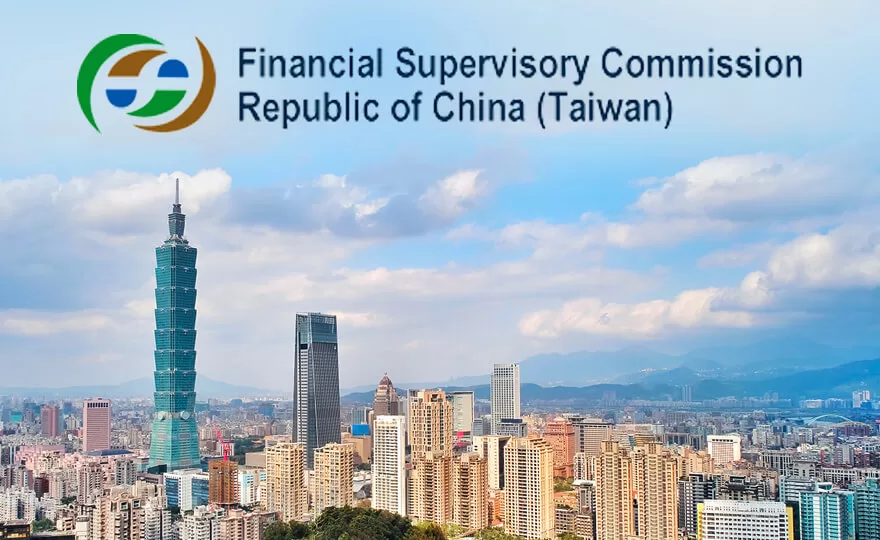In the bustling realm of cryptocurrencies, Taiwan’s Financial Supervisory Commission (FSC) has emerged as a beacon of regulation, steering the ship of the cryptocurrency industry toward safer shores. On September 26, this regulatory body released a comprehensive set of guidelines, aimed squarely at Virtual Asset Service Providers (VASPs). The mission? To create an environment where cryptocurrency transactions are not just secure, but also transparent.

This proactive move isn’t a spur-of-the-moment decision. The FSC’s journey into the world of cryptocurrency oversight began in March, signaling its intent to closely monitor the cryptocurrency exchange sector. Since then, the FSC has been diligently enforcing anti-money laundering regulations on every cryptocurrency exchange operating within Taiwan.
So, what do these groundbreaking guidelines entail?
- Asset Separation: Cryptocurrency exchanges under the FSC’s purview are mandated to segregate and safeguard their company treasury assets from customer assets. This clear demarcation ensures that customer funds remain sacrosanct, bolstering both security and trust.
- Listing and Delisting Standards: Transparency takes center stage with new standards set for the listing and delisting of digital assets on exchange platforms. Users now have access to more information about the cryptocurrencies available for trading, empowering them to make informed decisions.
- Information Disclosure: Transparency is not just a buzzword; it’s a cornerstone. Cryptocurrency firms must now disclose vital information to users, empowering them to navigate the cryptocurrency landscape with confidence. Informed decisions pave the way for secure transactions and minimize the risk of fraudulent activities.
- Foreign VASP Registration: Foreign cryptocurrency firms eyeing Taiwan must register with the FSC and demonstrate compliance with anti-money laundering regulations. These regulations, initially introduced in July 2021, underscore Taiwan’s commitment to global regulatory standards.
- Self-Regulation: The FSC champions self-regulation within the cryptocurrency industry. The aim? To establish norms based on these guiding principles, further fortifying customer protection and industry integrity.
This move mirrors a global trend where regulatory scrutiny in the cryptocurrency industry has intensified, especially following the market’s rollercoaster ride in 2022. Concerns about how cryptocurrency firms handle client assets have amplified, urging regulators worldwide to take decisive action.
Taiwan’s FSC isn’t crafting these guidelines in isolation. Drawing inspiration from cryptocurrency regulations in the European Union, Japan, and South Korea, Taiwan’s regulatory framework aligns with international standards, fostering a cohesive global approach to cryptocurrency oversight.
In response to these guidelines, Taiwan’s major cryptocurrency exchanges have united forces. Nine leading local exchanges, including Maicoin, BitstreetX, Hoya Bit, Bitgin, Rybit, Xrex, Shangbito, and others, have formed a self-regulatory association. Their goal? To define and establish self-regulatory norms by mid-October, harmonizing their practices with the FSC’s guidelines.
This collaborative effort signifies more than just industry compliance; it embodies a commitment to dialogue, transparency, and mutual growth. By fostering unity and cooperation, these exchanges are building a resilient industry chain, demonstrating the power of collective responsibility.
But the FSC isn’t stopping here. It’s tightening the reins further by effectively banning unregistered foreign cryptocurrency exchanges from operating in Taiwan. This decisive step underscores Taiwan’s dedication to investor protection and ethical practices within the cryptocurrency sector. Foreign VASPs can’t offer their services unless they have secured the necessary approval and registration from regulatory authorities, aligning with Taiwan’s ongoing comprehensive regulatory efforts.
Moreover, Taiwanese lawmakers have proposed a groundbreaking amendment. If approved, this amendment would create a dedicated bureau within the FSC specifically for cryptocurrency-related matters. This expansion would signify a significant milestone, placing cryptocurrencies under the FSC’s regulatory umbrella alongside its existing oversight of banking, securities, futures, insurance, and auditing.
In essence, Taiwan’s FSC is orchestrating a transformative narrative in the cryptocurrency landscape. By embracing global regulatory trends, fostering collaboration with industry stakeholders, and championing transparency, the FSC is paving the way for a cryptocurrency market that’s not just robust but also ethical and secure. Stay tuned as Taiwan continues its journey toward a progressive and responsible cryptocurrency future.

